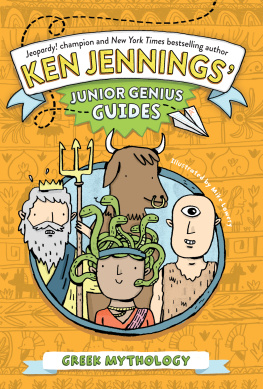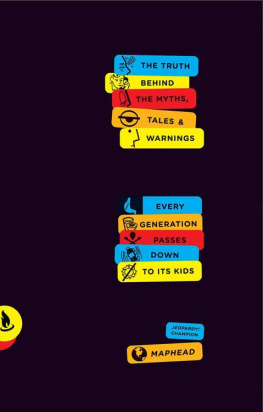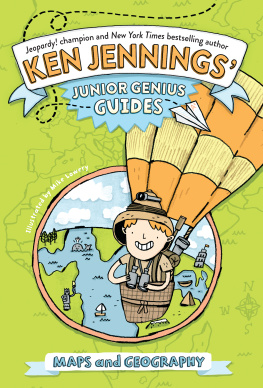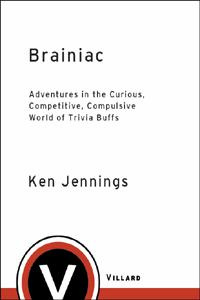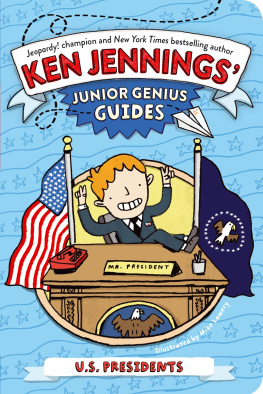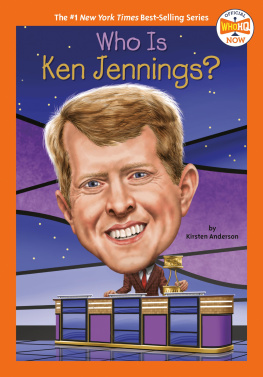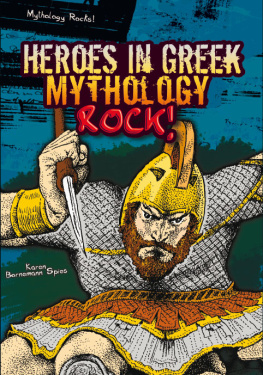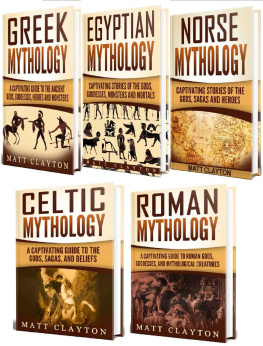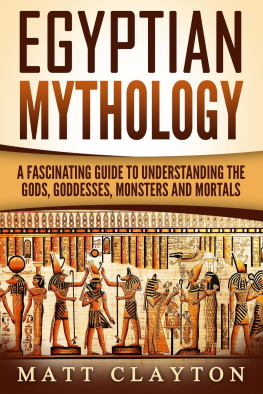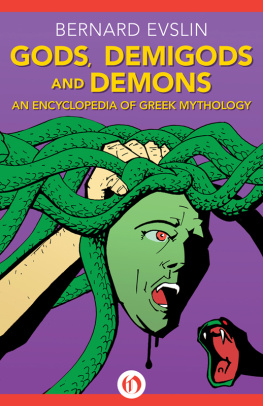Good morning, Junior Geniuses! Please take your assigned seats and settle down. Troublemakers in the front row! You know who you are.
My name is Ken Jennings, but you can call me Professor Jennings or Sir or Your Grand Sagaciousness. Our subject today is a fascinating one: the classic myths of the Greeks and Romans. Thats why Im wearing this simple white robe, or toga, even though frankly its a little chilly, especially when I stand over here by the ventilation panel. Today we will travel back more than three thousand years to the Bronze Age, when these myths were born, in pursuit of one of the only things that really matters in life: knowledge. Lots of knowledge about cool stuff.
The great thing about knowing stuff is that anyone can do it. To be a Junior Genius, all you need to do is pay attention every day to the weird facts in the world around youand the world is certainly overstuffed with weird facts nowadays. Thats why our secret Latin motto is Semper quaerens . In English, that just means Always curious.
Everyone: Stand up, put your right index finger to your temple, and face this drawing of Albert Einstein. We will now say the Junior Genius Pledge.
With all my fellow Junior Geniuses, I solemnly pledge to quest after questions, to angle for answers, to seek out, and to soak up. I will hunger and thirst for knowledge my whole life through, and I dedicate my discoveries to all humankind, with trivia not for just us but for all.

KEN JENNINGS grew up in Seoul, South Korea, where he became a daily devotee of the quiz show Jeopardy! In 2004, he successfully auditioned for a spot on the show, and went on an unprecedented seventy-four-game victory streak worth $2.52 million. Jennings book Brainiac, about his Jeopardy! adventures, was a critically acclaimed New York Times bestseller, as were his follow-up books, Maphead and Because I Said So! Jennings lives outside Seattle with his wife, Mindy; his son, Dylan; his daughter, Caitlin; and a deeply unstable Labrador retriever named Banjo. Visit Ken on the Web at ken-jennings.com.
MIKE LOWERY is an illustrator and fine artist whose work has been seen in galleries and publications internationally. Mike is the illustrator of Moo Hoo and Ribbit Rabbit by Candace Ryan; The Gingerbread Man Loose in the School by Laura Murray; and the Doctor Proctors Fart Powder novels by Jo Nesbo. Currently he is a professor of illustration at the Savannah College of Art and Design in Atlanta, Georgia, where he lives with a lovely German frau, Katrin, and his supergenius daughter, Allister. You can visit him on the Web at MikeLowery.com.
Look for other Junior Genius Guides at your favorite store!

Little Simon Simon & Schuster New York
authors.simonandschuster.com/Ken-Jennings
authors.simonandschuster.com/Mike-Lowery

Greece Is the Word
Every day we forget stories. I saw a funny video about a cat on the Internet this morning, but when I tried to tell a friend about it, I suddenly had no idea how it ended. A list of best-selling books from ten years ago would have authors on it that I dont even remember. The thing you have to realize about Greek myths is that these are stories so good that weve managed to remember them for more than three thousand years .
Three thousand years! When these stories were first told around a banquet table or a campfire, paper hadnt even been invented yet to write them down on. The entire world probably had only forty million people in itroughly the population of the state of California today. Two of those people were your great-great-great-great-... great-grandparents.

Today kids still love Greek myths, but they arent just fairy tales for childrentheyve become woven into our everyday life. Have you ever heard anyone say that someone has the Midas touch or an Achilles heel? If references like that are all Greek to you, dont worry. It just means that today youre going to hear some great stories for the very first time.
Best of the West
Greek mythology is still important today because so much of Western civilization was born in ancient Greece. Heres a list of some of the things we still use today that the Greeks invented. (Note that some of these inventions cropped up elsewhereIndia, China, the Middle Eastaround the same time.)
DEMOCRACY
AN ALPHABET with both consonants and vowels (our word alphabet even comes from the first two Greek letters, alpha and beta)

LOGIC
COMEDY AND DRAMA
GEOMETRY
WIND POWER

Not too shabby for a handful of small city-states founded by sheepherders! The Greeks even invented pizza... sort of. One of their favorite snacks was an ancestor of pizza called plakous : a delicious flatbread sprinkled with herbs, onion, and garlic. (Canadian bacon and pineapple hadnt been invented yet.)
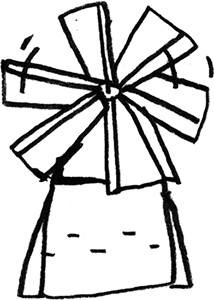
Hero Worship
The greatest Greek inventor was Hero of Alexandria, sometimes called Heron. Around AD 40 he invented the worlds first steam enginebut, not realizing the machines potential, only used it as a toy. For Greek temples, Hero invented the worlds first automatically opening doors and even a vending machine! (By inserting a coin into a slot, temple visitors could buy a specific amount of holy water.)

Ancient Greek buildings sometimes had showers and even central heating. Around 600 BC , the Greeks dug a two-thirds-mile tunnel on the island of Samos to supply the capital with water. And the Greek explorer Pytheas sailed as far north as Scandinavia!
Around 1960, scientists discovered that this ancient Greek device found in a ship-wreck was actually an early computer! Astronomers designed it to calculate positions of the sun, moon, and planets.

Greek scientists were not perfect, of course. Even bright guys like Aristotle thought that the Earth was the center of the universe, and that the heart was the center of human intelligence. (The brain, he said, was just a big cooling organ.) The great Greek mathematician Pythagoras refused to eat (or even touch) beans: He and his followers were sure that beans had souls!

